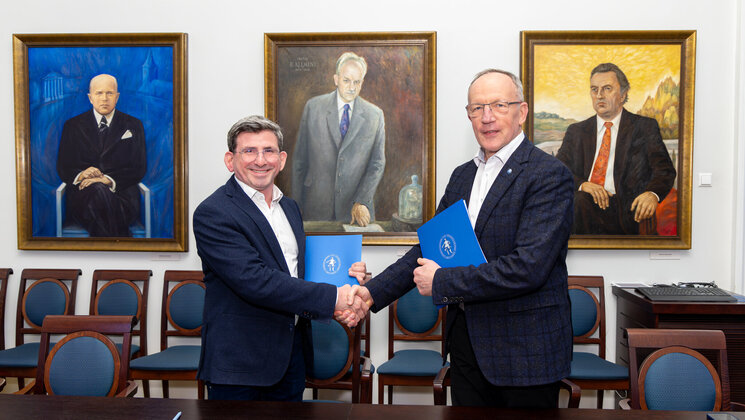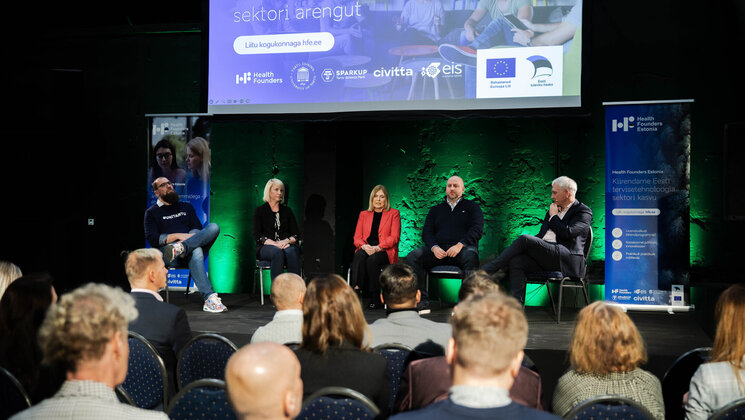-
Faculty of Arts and HumanitiesDean's Office, Faculty of Arts and HumanitiesJakobi 2, r 116-121 51005 Tartu linn, Tartu linn, Tartumaa EST0Institute of History and ArchaeologyJakobi 2 51005 Tartu linn, Tartu linn, Tartumaa EST0Institute of Estonian and General LinguisticsJakobi 2, IV korrus 51005 Tartu linn, Tartu linn, Tartumaa EST0Institute of Philosophy and SemioticsJakobi 2, III korrus, ruumid 302-337 51005 Tartu linn, Tartu linn, Tartumaa EST0Institute of Cultural ResearchÜlikooli 16 51003 Tartu linn, Tartu linn, Tartumaa EST0Institute of Foreign Languages and CulturesLossi 3 51003 Tartu linn, Tartu linn, Tartumaa EST0School of Theology and Religious StudiesÜlikooli 18 50090 Tartu linn, Tartu linn, Tartumaa EST0Viljandi Culture AcademyPosti 1 71004 Viljandi linn, Viljandimaa EST0Professors emeriti, Faculty of Arts and Humanities0Associate Professors emeriti, Faculty of Arts and Humanities0Faculty of Social SciencesDean's Office, Faculty of Social SciencesLossi 36 51003 Tartu linn, Tartu linn, Tartumaa EST0Institute of EducationJakobi 5 51005 Tartu linn, Tartu linn, Tartumaa EST0Johan Skytte Institute of Political StudiesLossi 36, ruum 301 51003 Tartu linn, Tartu linn, Tartumaa EST0School of Economics and Business AdministrationNarva mnt 18 51009 Tartu linn, Tartu linn, Tartumaa EST0Institute of PsychologyNäituse 2 50409 Tartu linn, Tartu linn, Tartumaa EST0School of LawNäituse 20 - 324 50409 Tartu linn, Tartu linn, Tartumaa EST0Institute of Social StudiesLossi 36 51003 Tartu linn, Tartu linn, Tartumaa EST0Narva CollegeRaekoja plats 2 20307 Narva linn, Ida-Virumaa EST0Pärnu CollegeRingi 35 80012 Pärnu linn, Pärnu linn, Pärnumaa EST0Professors emeriti, Faculty of Social Sciences0Associate Professors emeriti, Faculty of Social Sciences0Faculty of MedicineDean's Office, Faculty of MedicineRavila 19 50411 Tartu linn, Tartu linn, Tartumaa ESTInstitute of Biomedicine and Translational MedicineBiomeedikum, Ravila 19 50411 Tartu linn, Tartu linn, Tartumaa ESTInstitute of PharmacyNooruse 1 50411 Tartu linn, Tartu linn, Tartumaa ESTInstitute of DentistryL. Puusepa 1a 50406 Tartu linn, Tartu linn, Tartumaa ESTInstitute of Clinical MedicineL. Puusepa 8 50406 Tartu linn, Tartu linn, Tartumaa ESTInstitute of Family Medicine and Public HealthRavila 19 50411 Tartu linn, Tartu linn, Tartumaa ESTInstitute of Sport Sciences and PhysiotherapyUjula 4 51008 Tartu linn, Tartu linn, Tartumaa ESTProfessors emeriti, Faculty of Medicine0Associate Professors emeriti, Faculty of Medicine0Faculty of Science and TechnologyDean's Office, Faculty of Science and TechnologyVanemuise 46 - 208 51003 Tartu linn, Tartu linn, Tartumaa ESTInstitute of Computer ScienceNarva mnt 18 51009 Tartu linn, Tartu linn, Tartumaa ESTInstitute of GenomicsRiia 23b/2 51010 Tartu linn, Tartu linn, Tartumaa ESTEstonian Marine Institute0Institute of PhysicsInstitute of ChemistryRavila 14a 50411 Tartu linn, Tartu linn, Tartumaa EST0Institute of Mathematics and StatisticsNarva mnt 18 51009 Tartu linn, Tartu linn, Tartumaa EST0Institute of Molecular and Cell BiologyRiia 23, 23b - 134 51010 Tartu linn, Tartu linn, Tartumaa ESTTartu ObservatoryObservatooriumi 1 61602 Tõravere alevik, Nõo vald, Tartumaa EST0Institute of TechnologyNooruse 1 50411 Tartu linn, Tartu linn, Tartumaa ESTInstitute of Ecology and Earth SciencesJ. Liivi tn 2 50409 Tartu linn, Tartu linn, Tartumaa ESTProfessors emeriti, Faculty of Science and Technology0Associate Professors emeriti, Faculty of Science and Technology0Institute of BioengineeringArea of Academic SecretaryHuman Resources OfficeUppsala 6, Lossi 36 51003 Tartu linn, Tartu linn, Tartumaa EST0Area of Head of FinanceFinance Office0Area of Director of AdministrationInformation Technology Office0Administrative OfficeÜlikooli 17 (III korrus) 51005 Tartu linn, Tartu linn, Tartumaa EST0Estates Office0Marketing and Communication OfficeÜlikooli 18, ruumid 102, 104, 209, 210 50090 Tartu linn, Tartu linn, Tartumaa EST0Area of Vice Rector for Academic AffairsOffice of Academic Affairs0University of Tartu Youth AcademyUppsala 10 51003 Tartu linn, Tartu linn, Tartumaa EST0Student Union OfficeÜlikooli 18b 51005 Tartu linn, Tartu linn, Tartumaa EST0Centre for Learning and TeachingArea of Vice Rector for ResearchUniversity of Tartu LibraryW. Struve 1 50091 Tartu linn, Tartu linn, Tartumaa EST0Grant OfficeArea of Vice Rector for DevelopmentCentre for Entrepreneurship and InnovationNarva mnt 18 51009 Tartu linn, Tartu linn, Tartumaa EST0University of Tartu Natural History Museum and Botanical GardenVanemuise 46 51003 Tartu linn, Tartu linn, Tartumaa EST0International Cooperation and Protocol Office0University of Tartu MuseumLossi 25 51003 Tartu linn, Tartu linn, Tartumaa EST0Area of RectorRector's Strategy OfficeInternal Audit Office
UniTartu Ventures brings the University of Tartu's business cooperation to a new level

The investment company of the University of Tartu UniTartu Ventures and the start-up UP Catalyst have entered into a contract, the first of its kind in Estonia, whereby the university becomes a shareholder by investing intellectual property in the company. This way the university accelerates the flow of research results into science- and technology-intensive business.
The intellectual property owned by the university may include, for instance, data, research findings or patents. While enterprises both in Estonia and elsewhere have so far used the intellectual property of the University of Tartu either on the basis of a licensing agreement or a sales transaction, UniTartu Ventures offers the opportunity to invest intellectual property.
“We have created a model where the university hands the intellectual property over to UniTartu Ventures, who in turn gives it to a start-up and gets a shareholding in the company in return. UniTartu Ventures as an active investor will continue to provide development advice to the company also after the transaction,” the Investment Director of UniTartu Ventures Mart Maasik explained the process of investing intellectual property.
Through UniTartu Ventures, the university helps the start-up to achieve its long-term objectives while at the same time designing its own investment portfolio. The share can be sold at a suitable moment and the received income may be used to support the technology development of the university’s other spin-offs and to prepare for new intellectual property investments.
Starting a research-based company is often seen as the final destination of research work, but in business terms, it is just the start of a new journey. UniTartu Ventures aims to help ensure that, after the company starts up and raises the initial investment, its collaboration with the university, i.e. the research and development activities, will continue and business development gets a boost. This is a win-win situation for all the parties involved, and a knowledge-intensive business.
The start-up UP Catalyst converts the CO2 from heavy industry exhaust gases into valuable carbon nanomaterials and graphite, which are used in the production of batteries. In an investment round which ended just recently, investors placed in total more than €2 million in the company. According to Gary Urb, the CEO of the UP Catalyst, the transaction with UniTartu Ventures will increase the reliability of the company in the eyes of the investors.
“The deal gives us the confidence to vigorously move ahead with the commercialisation of the technology, even if its market potential will only be realised in several years’ time. It is also important for us to be a front runner in the development of the science-based entrepreneurship model and in creating the best practices for the university’s future spin-offs,” Urb explained.
The private limited company UniTartu Ventures was established a year ago with the aim of investing the intellectual property created by researchers in science- and technology-intensive businesses. During its first year of operation, UniTartu Ventures has carried out legal preparations and advised researchers on how to increase the investor readiness of their companies.
“We can guarantee that when intellectual property is transferred to a company in such a transaction, all intellectual property issues have been thoroughly addressed and resolved in a way that works for everyone,” Maasik explained the role of UniTartu Ventures in dispelling the doubts and fears of potential co-investors.
The University of Tartu’s participation in science-based start-ups helps create opportunities for closer links between Estonian economy and science. Through the private limited company UniTartu Ventures, the university can help researchers and also students to start entrepreneurship by directing the university’s intellectual property to the start-ups they establish and by looking for investors.
Read more similar news





